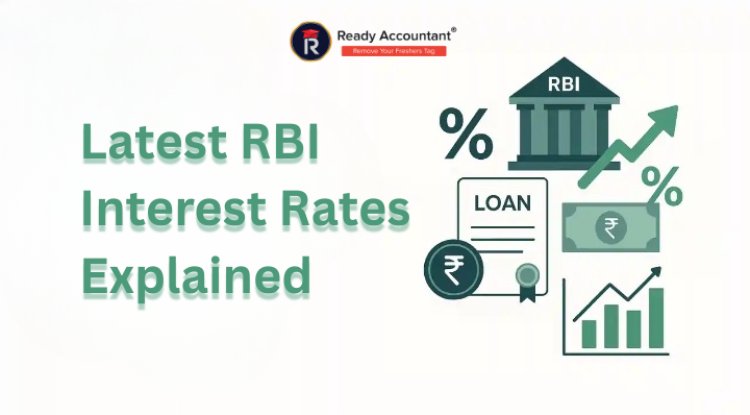What Happens If You Miss the ITR Due Date? Penalties Explained
Filing your Income Tax Return (ITR) on time is crucial to avoid penalties and safeguard your financial record. For AY 2025-26, the due date is July 31, 2025 for individuals and October 31, 2025 for businesses requiring audits. Missing the deadline attracts penalties under Section 234F of the Income Tax Act—₹5,000 if filed late but before December 31, and ₹10,000 if filed after that, though capped at ₹1,000 for incomes below ₹5 lakh. Apart from late fees, the consequences of not filing by the due date include loss of refund interest, inability to carry forward losses, additional interest on unpaid tax, and difficulties in loan or visa applications. While belated and revised returns are allowed until March 31, 2026, they still involve penalties. Timely filing ensures compliance, saves money, and strengthens financial credibility. For career aspirants, mastering Certified Corporate Accounting, SAP FICO (Finance & Controlling), and Taxation (Income Tax & GST) offers valuable expertis
Filing your Income Tax Return (ITR) is one of the most important financial responsibilities for every taxpayer in India. The Income Tax Department sets a strict deadline for submission, and failure to meet it can result in penalties, interest, and even legal consequences in certain cases. Many individuals delay their filing, thinking they can manage later—but missing the deadline can cost you more than you expect.
In this article, we will break down what happens if you miss the ITR due date, penalties in detail, and also discuss how provisions like Section 234F of the Income Tax Act impact late filers. We will also share practical tips for compliance and career-focused insights into areas like Certified Corporate Accounting, SAP FICO (Finance & Controlling), and Taxation (Income Tax & GST) for students and professionals interested in taxation and finance.
The Due Date for Filing ITR for AY 2025-26
The Income Tax Department of India announces a fixed due date for filing ITR every year. For most individual taxpayers who are not subject to audit, the due date for filing ITR for AY 2025-26 is July 31, 2025.
For businesses, companies, and individuals requiring audit, the due date generally extends to October 31, 2025. However, missing these deadlines without valid reasons can attract financial penalties, interest on tax dues, and other consequences.
Section 234F of the Income Tax Act – The Late Filing Fee
The biggest penalty provision you should know about is Section 234F of the Income Tax Act.
-
If you file your ITR after the due date but before December 31 of the assessment year, you will need to pay a late filing fee of ₹5,000.
-
If you file your ITR after December 31 but before March 31, the penalty increases to ₹10,000.
-
However, if your total income is below ₹5 lakh, the maximum late fee is capped at ₹1,000.
This means even if your income is relatively lower, missing the deadline will still attract monetary consequences.
Consequences of Not Filing by the Due Date
Beyond penalties under Section 234F, there are several other consequences of missing the ITR deadline. Let’s explore them:
1. Loss of Interest on Refunds
If you are eligible for a tax refund, you may lose out on interest if you delay filing your ITR. The earlier you file, the faster you can get your refund credited to your bank account.
2. Ineligibility to Carry Forward Losses
If you have incurred business or capital losses in a financial year, you can carry them forward to offset future income. However, this benefit is available only if you file your ITR before the due date.
3. Interest Under Section 234A, 234B, and 234C
In addition to the late fee, you may also have to pay interest on the unpaid tax amount under various sections of the Income Tax Act. This further increases your tax liability.
4. Difficulty in Getting Loans and Visas
Your ITR serves as proof of income and financial credibility. Not filing it on time can make it harder to get home loans, business loans, or even visas for international travel.
5. Possible Prosecution in Serious Cases
In extreme cases of willful evasion or non-filing of ITR despite having taxable income, the Income Tax Department may initiate prosecution. This could mean fines or even imprisonment.
Belated Returns: Can You Still File After the Due Date?
Yes, you can. A belated return can be filed up to March 31 of the assessment year. For AY 2025-26, this means you can still file your return until March 31, 2026, but with penalties under Section 234F and possible interest liabilities.
However, it is always advisable to file your ITR before the due date to avoid unnecessary costs and complications.
Revised Returns: Correcting Mistakes After Filing
If you have filed your return but later notice mistakes, you can file a revised return. The last date for filing a revised return is the same as that of a belated return, i.e., March 31, 2026, for AY 2025-26.
This provision ensures taxpayers can correct errors, but remember, if the original return was late, penalties will still apply.
Practical Example – Penalty Impact
Suppose an individual taxpayer with an annual income of ₹7,50,000 misses the due date (July 31, 2025) and files the ITR on November 15, 2025.
-
Late fee under Section 234F = ₹5,000
-
Interest under Section 234A = 1% per month on unpaid tax (if any)
-
Delay in refund = Loss of interest credit
This shows how costly missing the ITR deadline can be.
Career & Learning Angle – Why This Knowledge Matters
For students and professionals pursuing careers in finance, taxation, and accounting, understanding these rules is crucial.
-
Certified Corporate Accounting programs often include modules on taxation and compliance, preparing students to handle real-world tax scenarios.
-
SAP FICO (Finance & Controlling) is widely used in corporate finance departments for tax calculations, compliance tracking, and financial reporting.
-
Taxation (Income Tax & GST) as a career specialization equips professionals with practical knowledge about ITR filing, GST returns, and compliance management.
By mastering these areas, students can position themselves as highly skilled professionals in the accounting and finance industry.
How to Avoid Missing the ITR Due Date
-
Keep Track of Deadlines – Mark important dates for AY 2025-26.
-
Collect Documents Early – Gather Form 16, TDS certificates, investment proofs, and bank statements in advance.
-
Use Technology – File through the Income Tax portal or trusted platforms using tools like Excel utility.
-
Seek Professional Help – If you are unsure, consult a tax expert or join professional training programs to enhance your knowledge.
Conclusion
Missing the ITR deadline is not just a minor slip—it can result in penalties, interest, and long-term consequences for your financial credibility. As explained, Section 234F of the Income Tax Act imposes late filing fees, and the consequences of not filing by the due date range from monetary losses to missed opportunities.
The best way forward is to stay compliant and file your return before the due date for filing ITR for AY 2025-26. If you are a student or working professional looking to strengthen your expertise, consider training in Certified Corporate Accounting, SAP FICO (Finance & Controlling), and Taxation (Income Tax & GST)—skills that will not only help you file your own returns correctly but also build a rewarding career in finance.
What's Your Reaction?



















